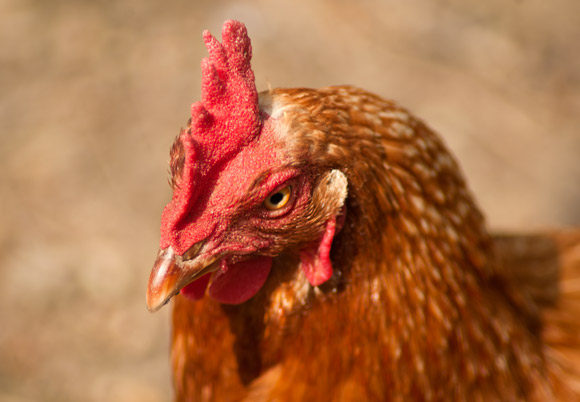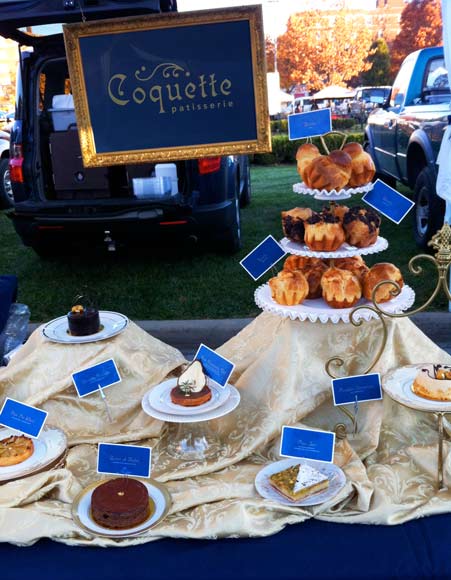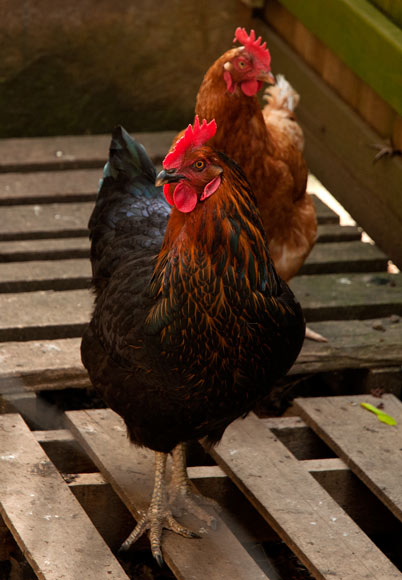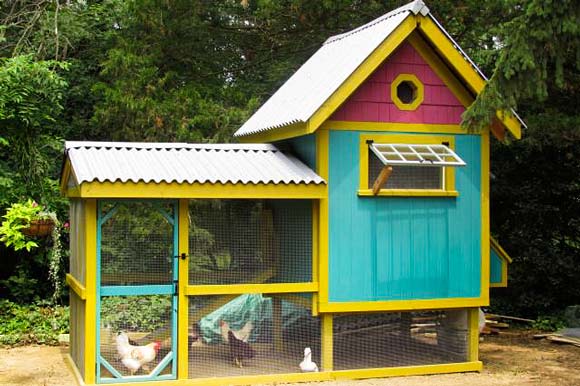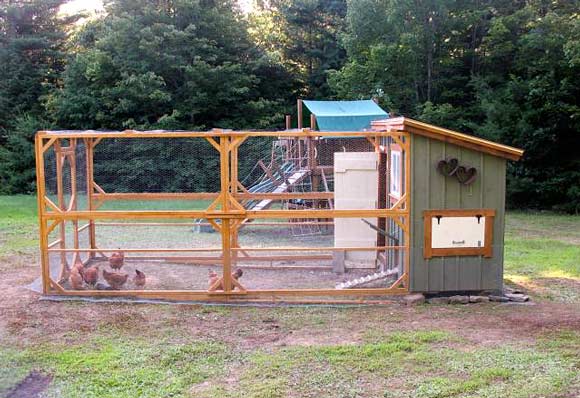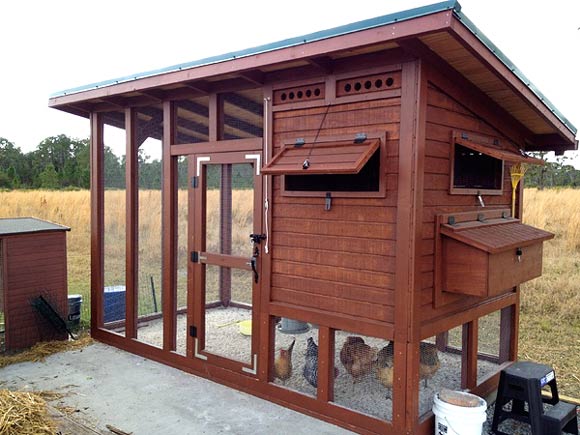counting their chickens before they hatch in cleveland heights
The answer to that age-old question about which came first -- the chicken or the egg -- is neither. It's the coop, because without one, your chickens will have no place to roost.
Nobody knows that better than Timothy Riffle. A master woodcarver, Riffle has been building high-quality rabbit hutches, chicken coops and beehives out of his Cleveland-based studio for two decades. As a Cleveland Heights resident, he is thrilled to finally be able to sell his friends and neighbors their first legal chicken coop.
Very soon, the City of Cleveland Heights officially will amend its zoning code "To encourage sustainable development and practices in residential neighborhoods." Changes will make it expressly lawful to install rain barrels, hang clotheslines, plant front-yard vegetable gardens, build compost bins and replace asphalt driveways with those featuring semi-pervious materials.
But without question, the topic garnering the most buzz is backyard chickens.
As it stands, residents will be permitted to keep up to four hens (no roosters) on a conditional basis. The conditions being that the chicken coop be kept in good repair, maintained in a clean and sanitary condition, and not disturb neighboring residents. Residents will not be permitted to sell their eggs nor slaughter the birds.
"This legislation makes Cleveland Heights one of the most sustainable cities in the United States behind Portland," explains Riffle, who helped facilitate some of the amendments.
Citing a growing national trend that is bringing chicken rearing squarely into the centers of town, Riffle calls the movement nothing short of an "explosion of interest." For proof, look no further than the popular online forum BackYard Chickens, which boasts 130,000 registered members.
"It all stems from the local foods movement, when people started to get interested in where their food comes from," says Riffle. "Then we wanted to participate in that process."
He says that he's already received orders for coops from Cleveland Heights residents who can't wait to get started. He calls these orders his first "legal" coops because there are those who have been keeping backyard chickens in the neighborhood for upwards of 30 years.
In addition to knowing what the chickens eat and how they are raised, Riffle says that fans of backyard birds understand that the eggs are far healthier than those that exit factory farms
That's just one of the reasons Cleveland Heights resident Shane Culey is counting his chickens before they hatch. Culey and his wife Britt-Marie, a pastry chef, run the popular Coquette Patisserie, a regular at the Shaker Square farmers market. To prepare their addictive confections, the Culeys fly through dozens and dozens of eggs per week.
"We would love to be able to use our own eggs," explains Culey. "We already try to be as local and seasonable as possible. This would just be an extension of that practice even further. But more important, the quality would be where we insist that it be."
In addition to the farm-fresh eggs, Culey cites as benefits the fact that chickens are biological pesticides, herbicides and fertilizers. They eat bugs and weeds and turn them into an all-natural fertilizer, while their constant scratching aerates the lawn.
To prepare for the arrival of their chickens, the Culeys must first add fencing, build or buy a coop, and decide upon which breed best fits their needs. They already had a conversation with their next-door neighbor, who expressed some reservations about being so close to the animals.
"I look at it as a great opportunity to educate them that the preconceptions are not accurate," notes Culey.
Of course, the Culey's neighbors aren't the only ones who have voiced concern over the introduction of city chickens. Attendees at local city council meetings fear an influx of vermin, noxious odors, and the ubiquitous drop in property values.
"People who are against backyard chickens believe that the practice lowers housing values, which is absurd from my own experience," explains Riffle, who also happens to be a real estate agent with Howard Hanna. "I sell $400,000 townhouses in Tremont to couples that have chickens. Younger residents don't see chickens as a detriment; they see it as an asset."
Indeed, to sweeten his home sales performance, Riffle will be offering his Cleveland Heights clients a free chicken coop with every purchase. He also hopes to start house-to-house chicken coop tours, much like the traditional garden tours.
Meanwhile, Culey is just thrilled to be in the right place at the right time.
"I think the legislation says that Cleveland Heights is a forward-thinking town, and I think it makes the city more appealing to creative people," he says. "I know it would make it more appealing to me."
- Images 1 & 4: Bob Perkoski
- Images 2 & 3: Shane Culey and his wife Britt-Marie of Coquette Patisserie
- Images 5 - 7: Chicken Coops from Back Yard Chickens


